Archives
-

Plasticity. Lives and Forms of an Aesthetic Concept
No. 22 (2025)Edited by Alice Iacobone
The intimate connections between plasticity, aesthetics, and the arts have always been acknowledged, but seldom have they been specifically investigated. This issue frames plasticity within the aesthetic discourse along three directions: firstly, by putting plasticity into contact with other aesthetic concepts, categories, and traditions. Secondly, by linking plasticity to sensation and perception, thus opening up to discourses on sensoriality, sensibility, and affects. Thirdly, by examining plasticity in the close proximity of specific artworks. Through a great number of case studies, the essays collected in this issue show the many aspects of plasticity that stem from concrete artistic phenomena.
-
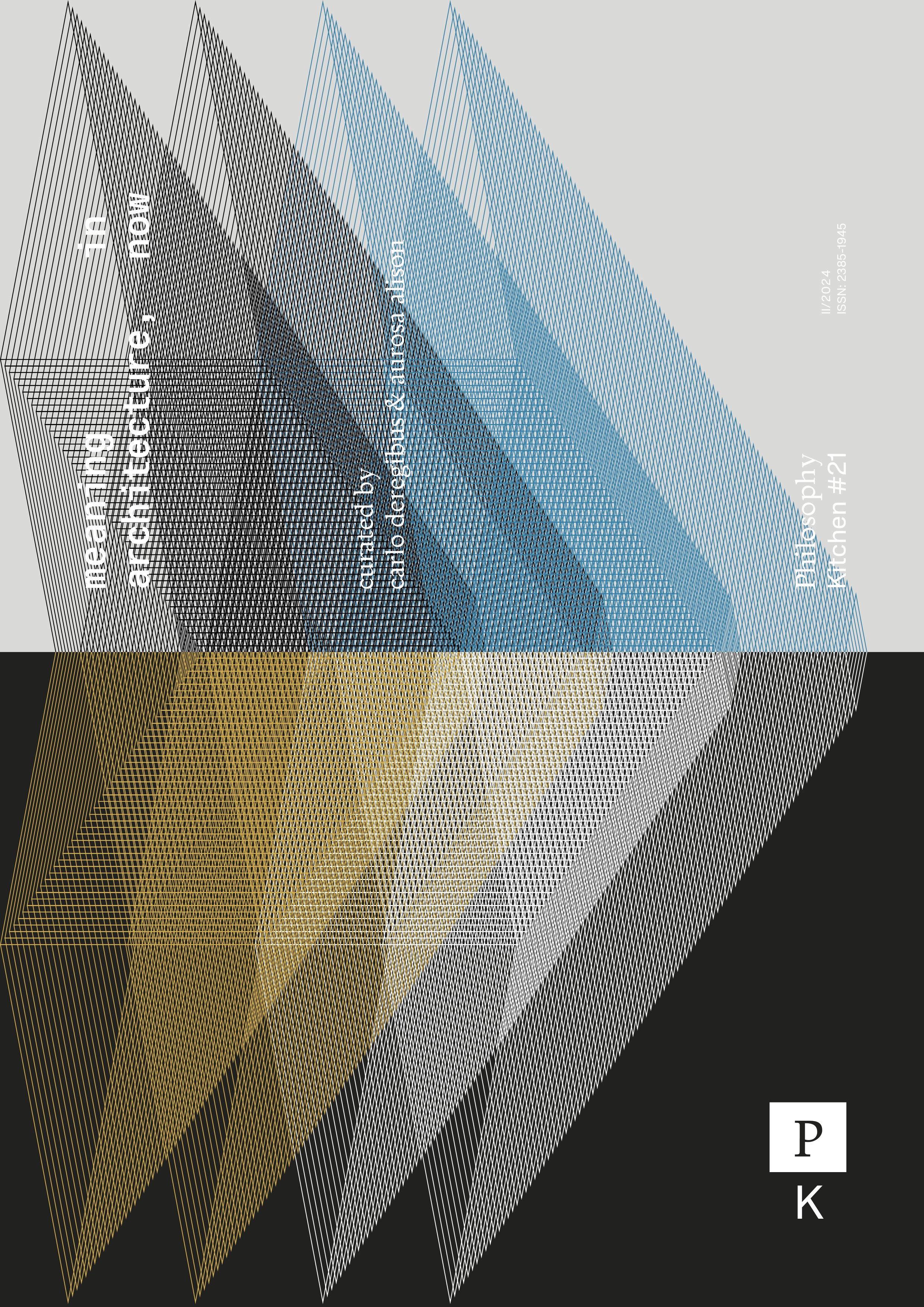
Meaning in Architecure, now
No. 21 (2024)Edited by Carlo Deregibus and Aurosa Alison
The connection between form and meaning has been so intrinsic and obvious that it has been implicit for centuries. Then, around fifty years ago, the issue of meaning suddenly burst into the architectural world, with many scholars and practitioners bustling to introduce semiology and semiotics into design. Now, after the globalisation and the atomisation of thoughts of the last decades, those debates could seem pretty meaningless, the form being mainly an aesthetic feature or a counterfeit fetish for everchanging, feeble poetics. Yet, we continue to design, produce, and critique architecture, attributing meanings, intentions, and hopes to its forms. Once more, we will explore and discuss the elusive yet unavoidable connection between meaning and architecture: four thematic sections to understand the place and dimension of meaning in, of, from, to, after, or maybe even for Architecture.
-
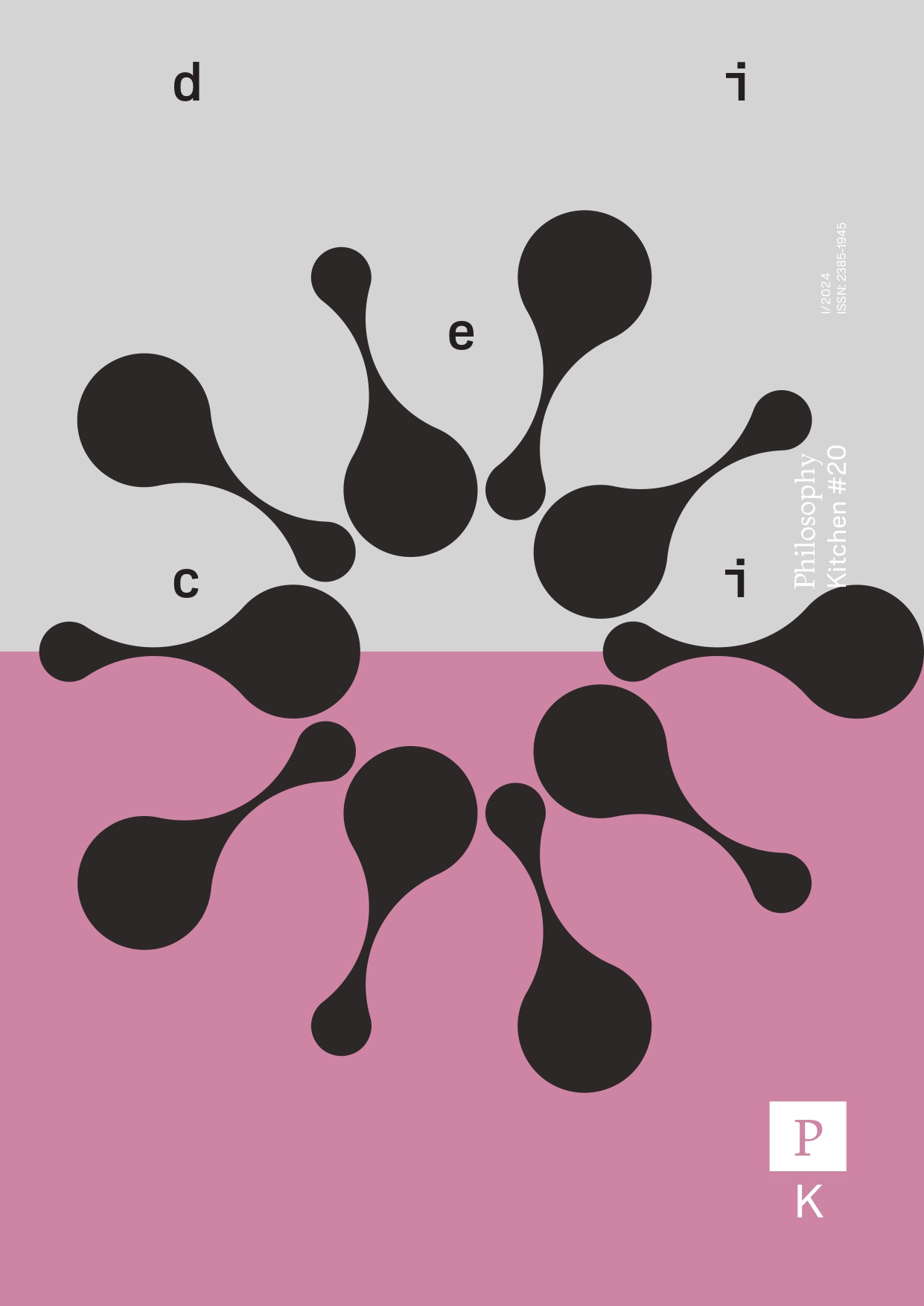
dieci
No. 20 (2024)Edited by Philosophy Kitchen
Philosophy Kitchen celebrates its tenth anniversary. With this issue we celebrate this decade, crossing the lines of research that have inhabited the journal in the hope of relaunching them in the years to come. Here, then, is our state of the art, from which we scientifically restart. An issue constructed as an opportunity for reflection on the journal itself, an introspective look at the past and at the same time projecting it towards the future. Among those past and present, ten members of the editorial board have chosen their own personal author of reference: ten authors that, if one had to choose, one would take to a desert island or perhaps save from universal disaster, consigning it to posterity. And ten guests, scholars of acknowledged fame, called to a re-reading of those authors, an exploration, a re-launch. To present and motivate the choices, ten freely written introductions, linking each curator, his author and his guest. What emerges is a super-synthesis of Philosophy Kitchen's position. A multifaceted position, just like the transcendental prism of the first issue, and built from and on the contamination of gazes and disciplines. The ten authors are perhaps classics: not so the ten readings that are given of them, precisely because a continuous re-founding of knowledge is possible and, therefore, necessary.
-
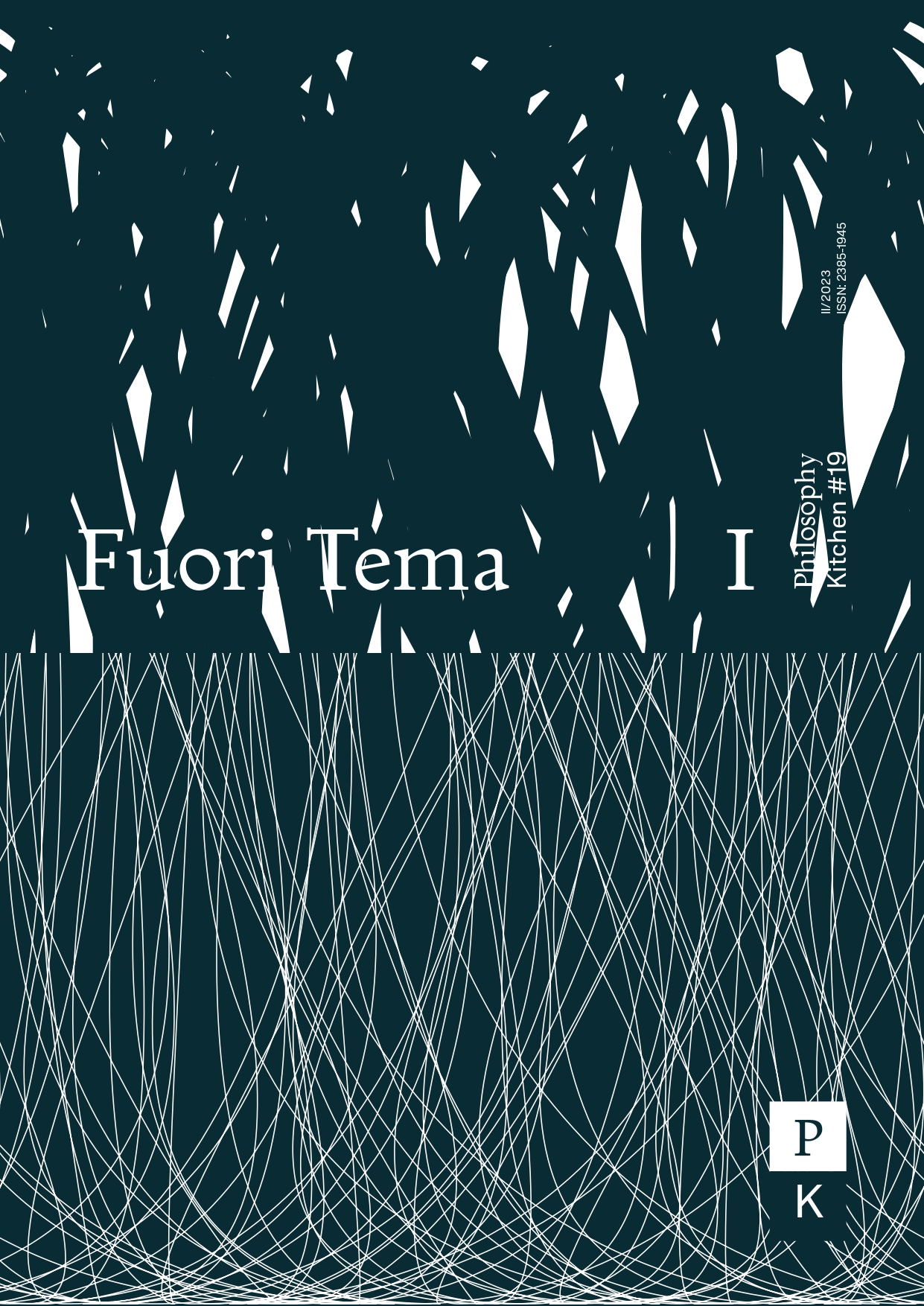
Off Topic I
No. 19 (2023)Edited by Philosophy Kitchen
Never in history has so much been written. Novels, short stories, even poetry, are experiencing an unsuspected and perhaps unhoped-for flowering: but it is also and perhaps above all in the field of knowledge that the growth is incredible. In all the variegated and increasingly fragmented fields of knowledge, be it the so-called STEMM (Science, Technology, Engineering, Mathematics, Medicine) or HASS (Humanities, Arts, Social Sciences), the most evident feature of academic production is in fact now its constant, exponential, unstoppable quantitative increase. Research production has transformed, becoming increasingly atomised, measurable, neo-liberal, surfable and iterative: but also original?
-
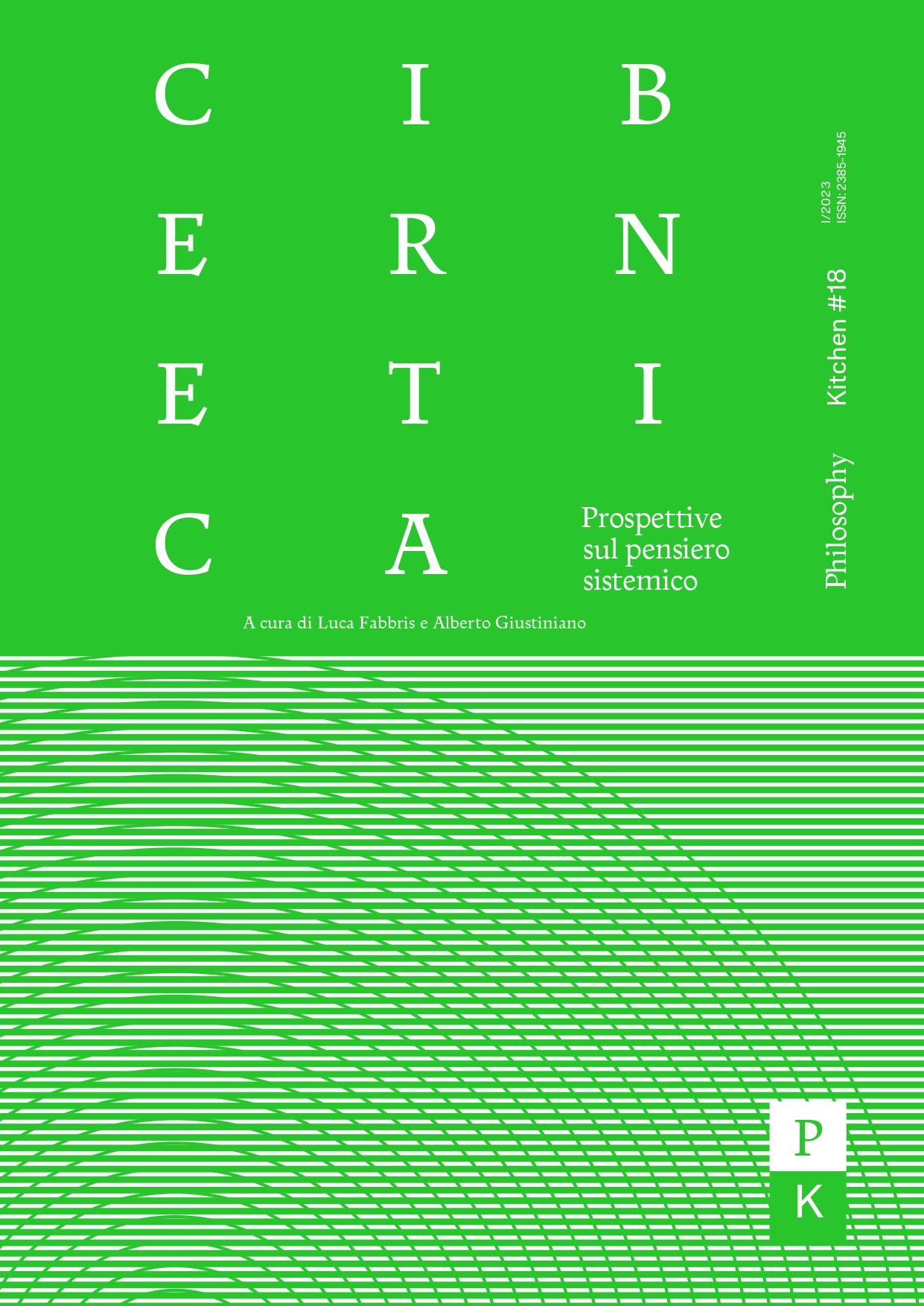
Cybernetics. Perspectives on Systemic Thinking
No. 18 (2023)Edited by Luca Fabbris and Alberto Giustiniano
«Ce n’est plus d’une libération universalisante que l’homme a besoin, mais d’une médiation», Gilbert Simondon (1958) would write, concerning the encyclopedic ideal embraced by cybernetics. This encyclopedic inspiration went hand in hand with an explicit desire for renewal of philosophical categories and with the will of overtaking metaphysics’ dichotomies. It is the spectral and disseminated character of cybernetics, its insistence in the interstices of the encyclopaedia, that has led us to devote this issue to it, with the aim of mapping the places of knowledge in which the traces left by cybernetics can be discerned, following its trails, reconstructing its plots, bringing out its modes of being, questioning its legacy and relevance.
-
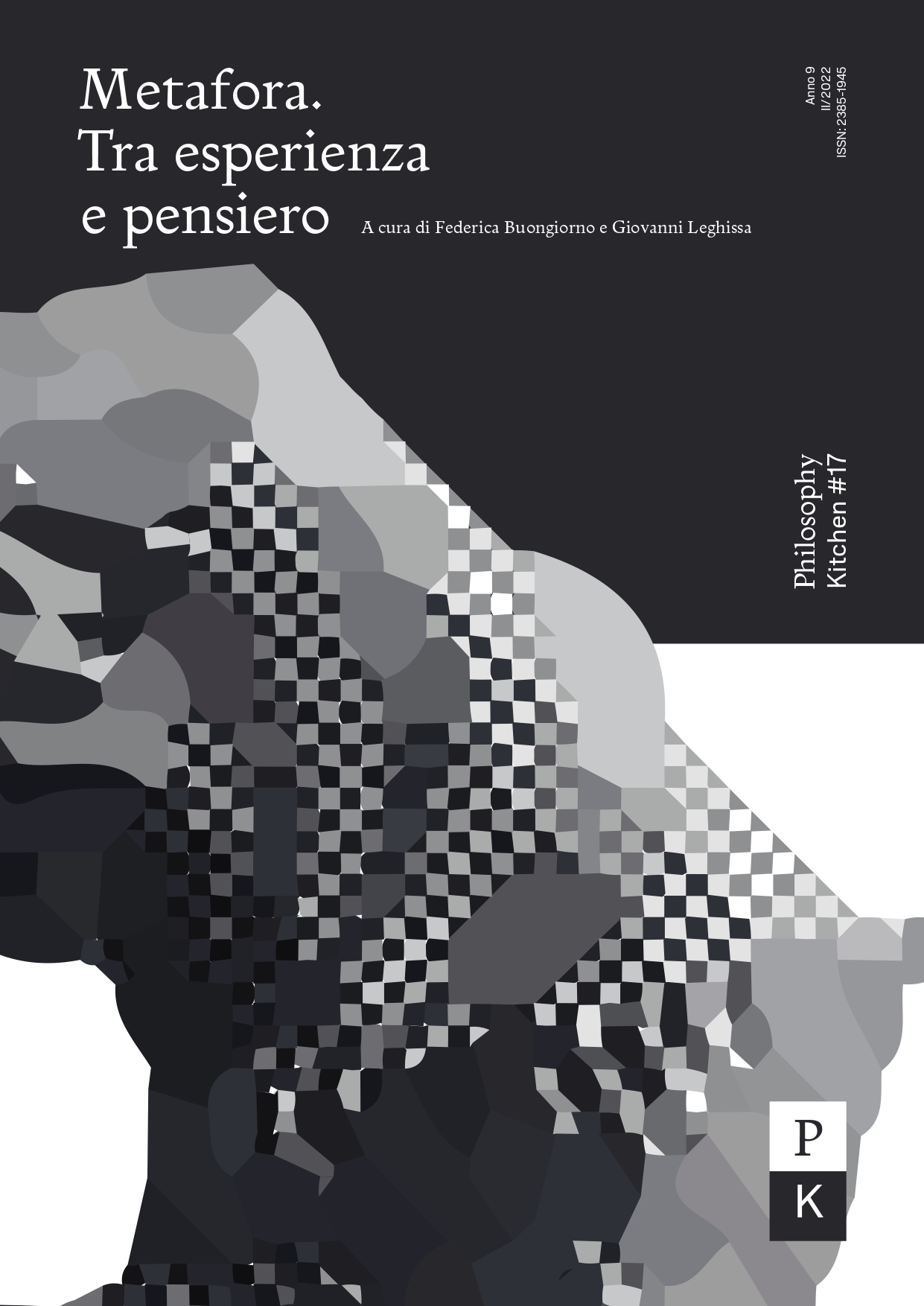
Metaphor. Through Experience and Thought
No. 17 (2022)Edited by Federica Buongiorno and Giovanni Leghissa
From the moment the discursive practice of the philosopher emerged as a form of knowledge superior to all others, metaphor was seen as a mere aid to be resorted to when theory does not work the way it is supposed to work. There has never been a shortage, however, of those who considered the concept dimension incapable of saturating the meaning, making it possible to eliminate the metaphorical. It would be during the course of the 20th century that philosophical discourse would overcome any prejudice against figurativeness, the iconic, the narrative, integrating them as an integral part of philosophical argumentation. In this issue, reference will be made to a few authors useful in illustrating the scenario just outlined in a paradigmatic manner.
-

Meditations on Love
No. 16 (2022)Edited by Veronica Cavedagna and Giovanni Leghissa
Like being, love is said in many ways. There are different grammars of love, and different phenomenologies of love experience. The threads that bind the grammars of love are also complex, and even when they are said in the unspoken words of erotic ecstasy or in the silence that accompanies the mourning due to the loss of the beloved object, they are always stretched towards their own saying, towards a possible narration. Purifying or amending these grammars is not an easy task, but recognising that many of them conceal the presence - sometimes not even so hidden - of male or patriarchal domination, it is at least desirable to provide a deconstruction.
-
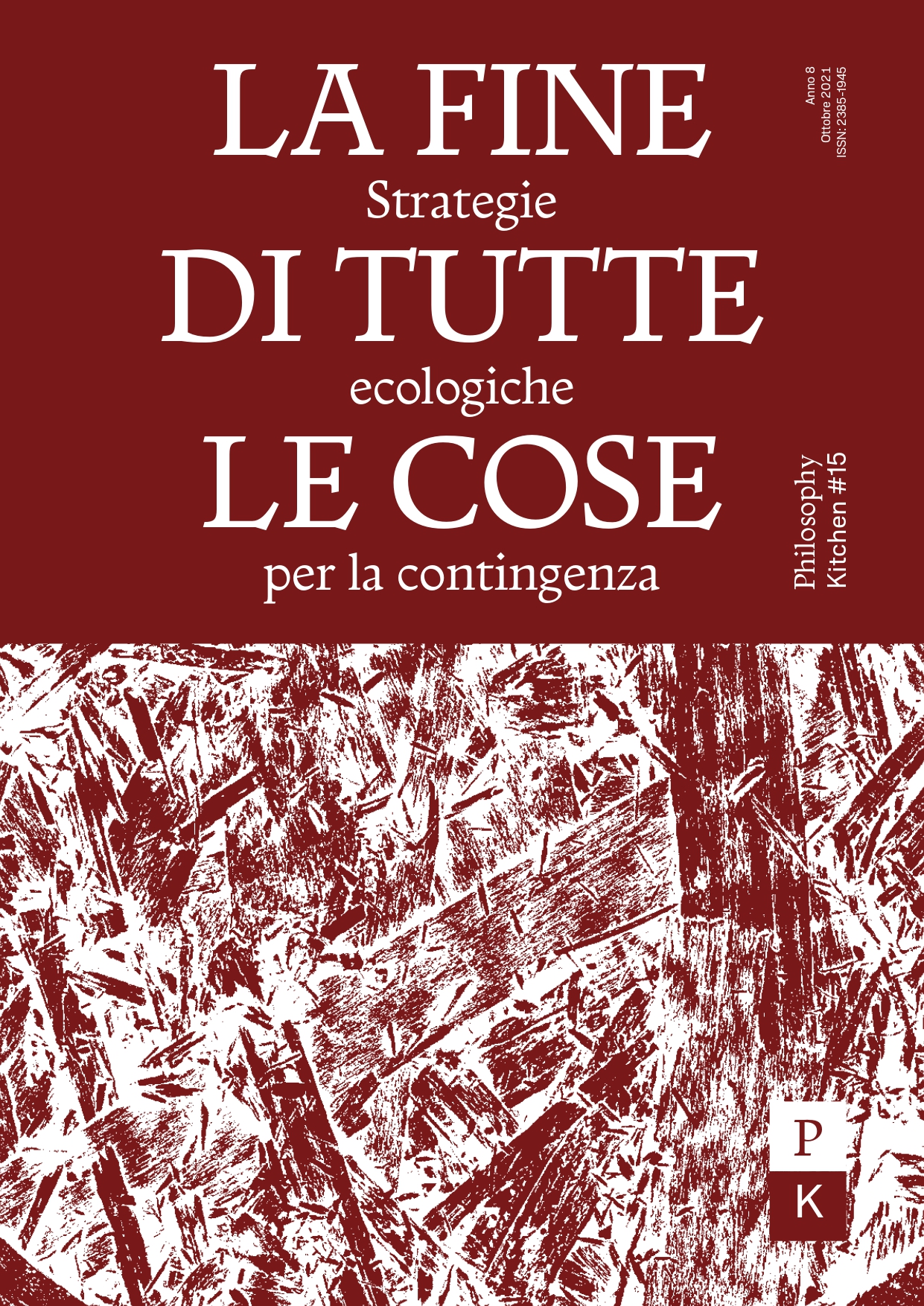
The End of All Things. Ecological Contingency Strategies
No. 15 (2021)Edited by Philosophy Kitchen
Although the ecological question has been central to philosophical and scientific debate for over fifty years - as "the study of the interrelationships between organisms and their host environment […] on three levels of biological hierarchy: individuals, populations and communities" (Treccani) - recent years have seen an explosion of the topic, which has forcefully entered the political agendas and above all the collective imagination. In different ways, movements such as FridaysForFuture and Extinction Rebellion have condensed activist energies around the world, and expanded the battle to a higher level of tension and complexity: from environmentalism we have moved on to the ecological question, which currently exceeds all the representations we are able to give it.
-
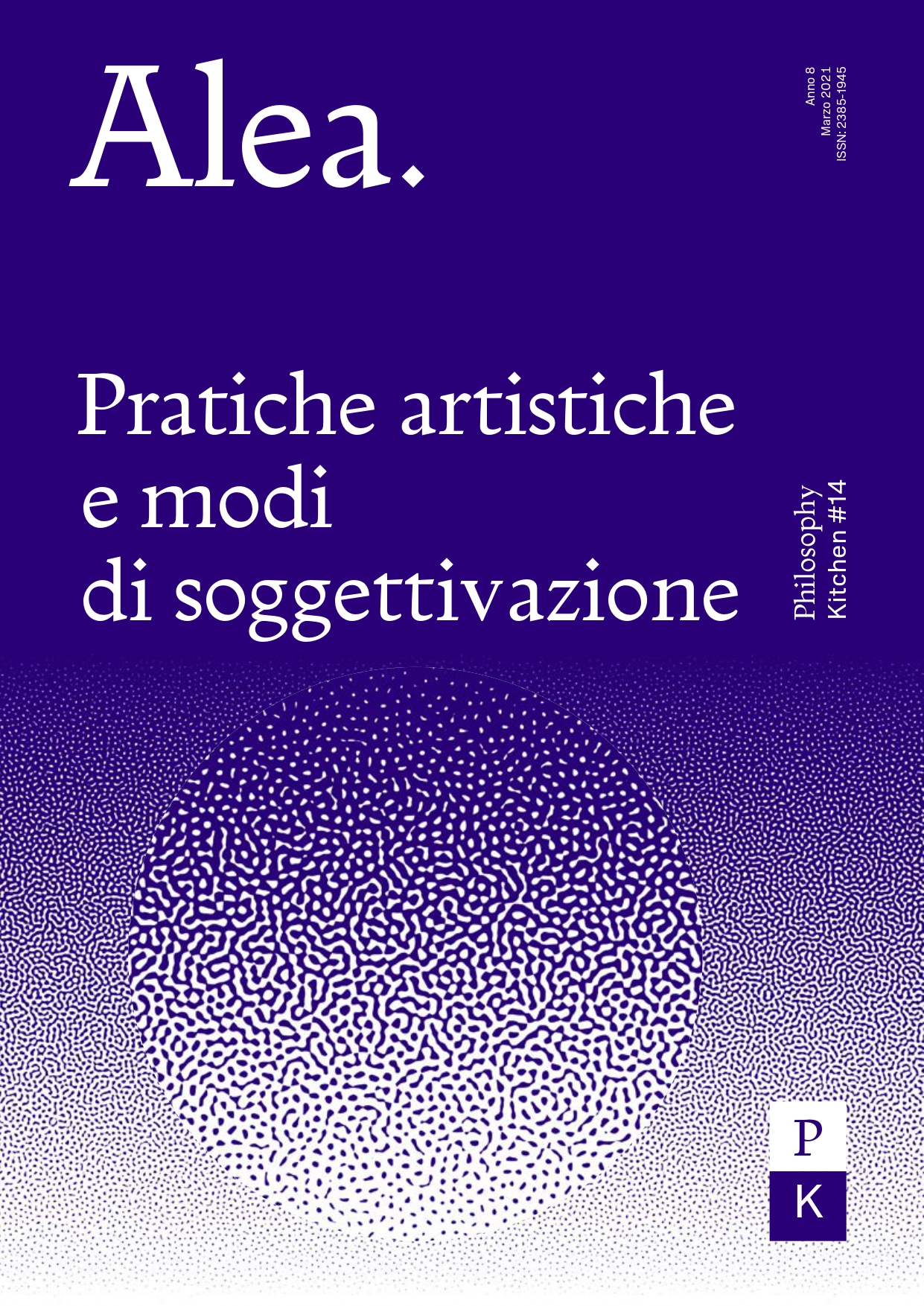
Alea. Artistic Practices and Modes of Subjectivation
No. 14 (2021)Edited by Benoît Monginot, Stefano Oliva and Sébastien Wit
Although acknowledging that any artistic project is necessarily exceeded by the alterity of determining causes is quite a mundane way of representing the artistic fact (one thinks of the various theories of divine inspiration, of involuntary ideological conditioning, of the postulation of the existence of a logic of the unconscious, etc.), the implication of chance as the root cause of a work raises a critical issue since it rules out any interpretation of the work either as a manifestation of a truth that would have been pre-existing in god, or as a social or psychoanalytical determination of the forms produced and interpreted. In other words, the recognition or claiming of a measure of chance seems to imply modes of signifiance for which the identification of a project becomes problematic.
-
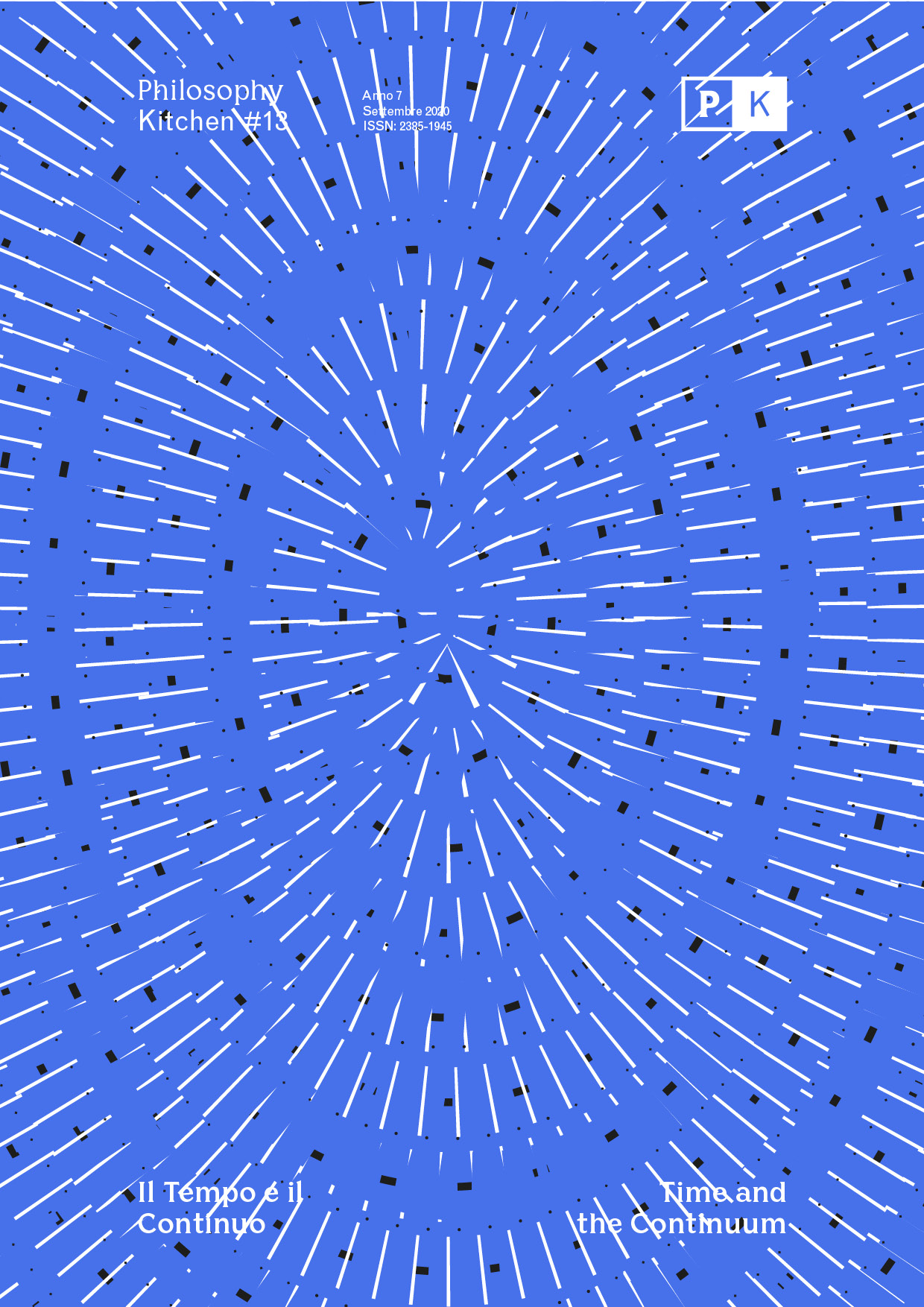
Time and the Continuum
No. 13 (2020)Edited by Cord Friebe and Marcello Garibbo
Despite the development of a rigorous mathematical definition of continuity through the development of set theory at the end of the 19th century, the continuity of time still remains a problem for the contemporary philosophy. This holds especially for those theories that accentuate the dynamic nature of time and change, such as the A-theory and in particular presentism. For, how can we conceive time as something continuous and extended, if this is dynamic and hence in eternal becoming? How should we understand the dynamical continuity of time in opposition to the static continuity of space? Through an analysis of different conceptions of the continuum in the history of philosophy, the present issue intends to explore different answers to this question.
-

The Impossible Presence. Husserl and Passive Syntheses
No. 12 (2020)Edited by Claudio Tarditi and Alberto Giustiniano
As is well known, volume XI of Husserliana 1 (1966) collects the manuscripts that Husserl dedicated to the problem of passive synthesis between 1918 and 1926. In fact, the most recent publication of Bernauer Manuskripte in volume XXXIII (2001), on which Husserl worked with Edith Stein in the summers of 1917 and 1918, shows how the theme of passivity had been latently present for a long time, since it was closely connected with the problem - "the most complex of all phenomenological problems" (Husserl 1966a, 276) - of the internal consciousness of the time.
-
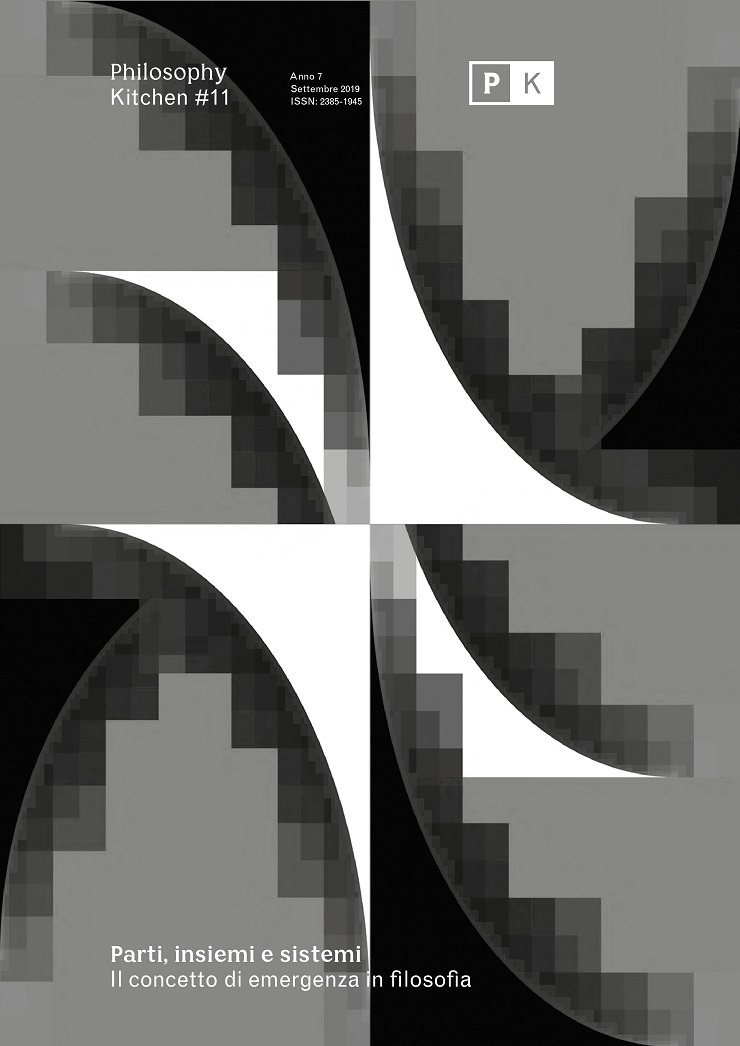
Parts, Wholes and Systems. The Concept of Emergence in Philosophy
No. 11 (2019)Edited by Erica Onnis
After over fifty years of mistrust and caution, the notion of emergence is once again the object of interest for both philosophers and scientists. On the one hand, physics and the natural sciences have had to deal with phenomena that could be well described by this concept (for example, ferromagnetism and superconductivity); on the other hand, complexity science has taken the emergence of new patterns and new systemic properties as the mark of many complex physical, biological and social systems...
-
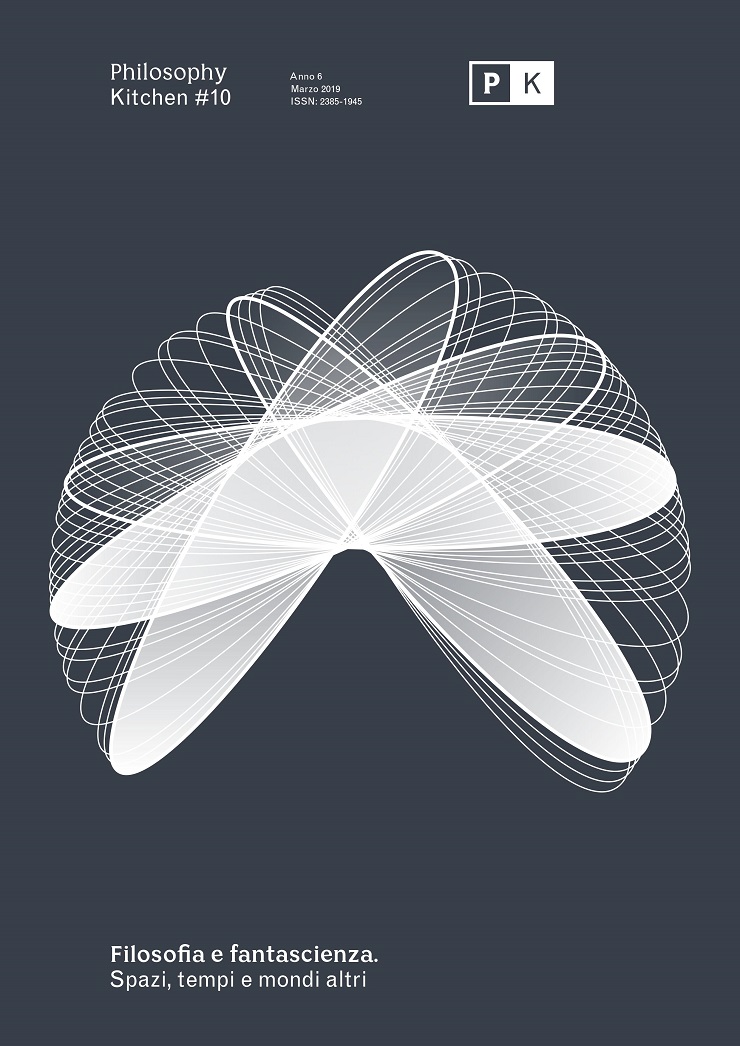
Philosophy and Science Fiction. Other Spaces, Other Places and Other Worlds Of Thought
No. 10 (2019)Edited by Antonio Lucci and Mario Tirino
«Man, without utopia, falls into the hell of a daily life that expropriates him from every meaning and kills him little by little; but as soon as he fiddles with the realization of that utopia, at the same time he prepares the conditions for a more and more atrocious daily life». Thus, more than twenty years ago, the mathematician and media activist Antonio Caronia (1996, p.58), who died prematurely in 2013, summarized the inseparable link between utopias and dystopias, as in a disturbing Moebius strip.
-
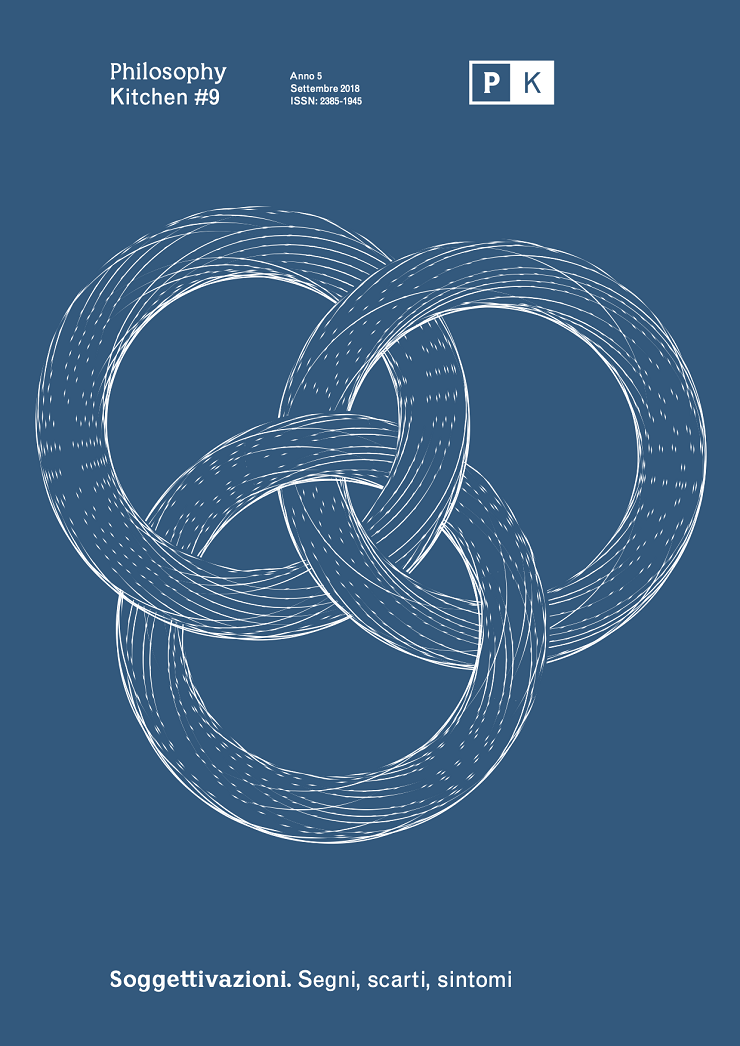
Subjectivations. Signs, Wastes, Symptoms
No. 9 (2018)Edited by Lorenzo Curti and Irene Ferialdi
In the cultural climate of the early 20th century, Jacques Lacan inaugurates a lifelong re-examination of the notion of subject, in the name of a return to Freud. Among the many ideas that shaped his theoretical revision, his knowledge of Ferdinand De Saussure’s work was fundamental since, as is well known, it allowed him to include the issue of subjectivation under the paradigm of structuralist linguistics. This results in a crucial theoretical breakthrough that also represents the first dialectical formulation of subjectivity...
-
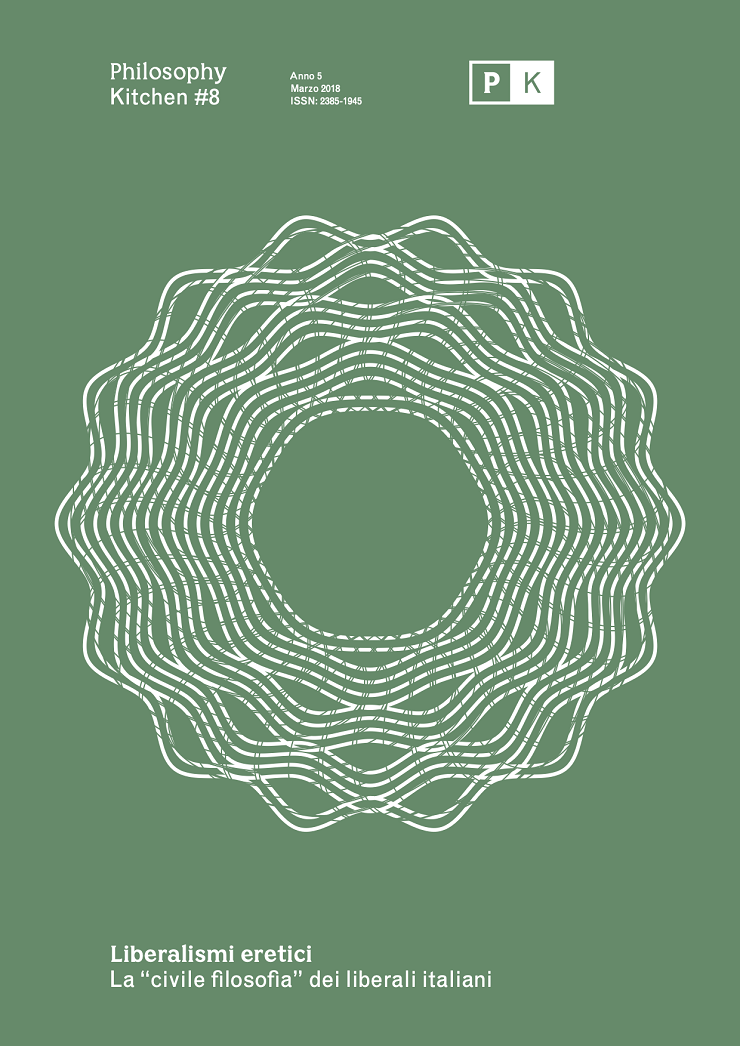
Heretical Liberalism. The Italian Liberals’ “Civil Philosophy”
No. 8 (2018)Edited by Giovanni Leghissa and Alberto Giustiniano
Since some time, some Italian authors active in the field of philosophy are becoming successful abroad, especially in the Anglo-Saxon area. You can even talk about an Italian Theory, to work alongside the French Theory as a resource to call to action in view of a critical debate about the present. On the other side, the traditional thinking related to Liberalism seems completely forgotten, both at home and abroad, even if it focused maybe more than the Italian Theory on the need to reflect on the meaning of social life...
-
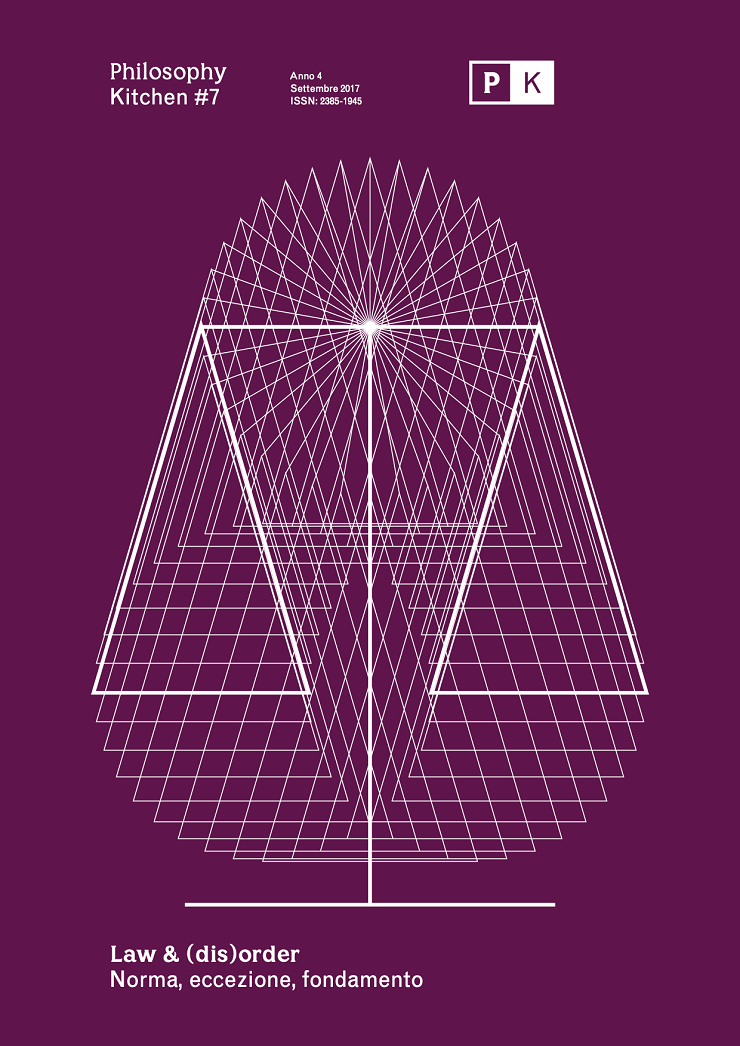
Law & (Dis)Order. Rule, Exception, Foundation
No. 7 (2017)Edited by Mauro Balestrieri and Alberto Giustiniano
Law is ‘sovereign’, it has been said. Since the poet Pindar expressed this fulminating thought in the 6th century B.C., the whole western tradition, from Aristotle to Cicero, from Heidegger to Schmitt, hasn’t stopped raising questions about the ambivalent relationship connecting law, strength and violence. It has been said that law is ‘subtle’ too: establishing its widespread, imperceptible power, rooted in the institutions’ actions as well as in the directions of consciousness, it ended up ruling over the individual before this one even realized it...
-
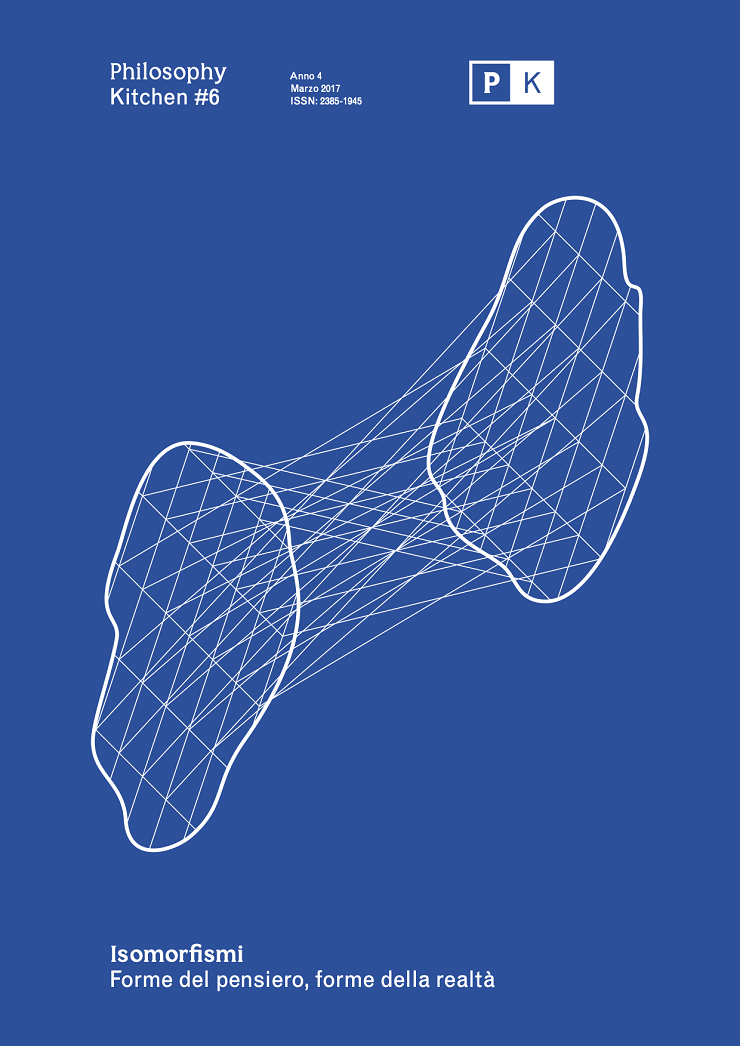
Isomorphism. Forms Of Reality, Forms Of Thinking
No. 6 (2017)Edited by Veronica Cavedagna and Ludovica Conti
In the 20th century, the concepts of form and structure experience a radical reconsideration. The case of mathematics is noteworthy: even tough the notion of structure in both algebra and set theory already appeared at the end of the 19th century, we witness the attempt to reconsider science as a whole in the light of such notion only in the last century.
-
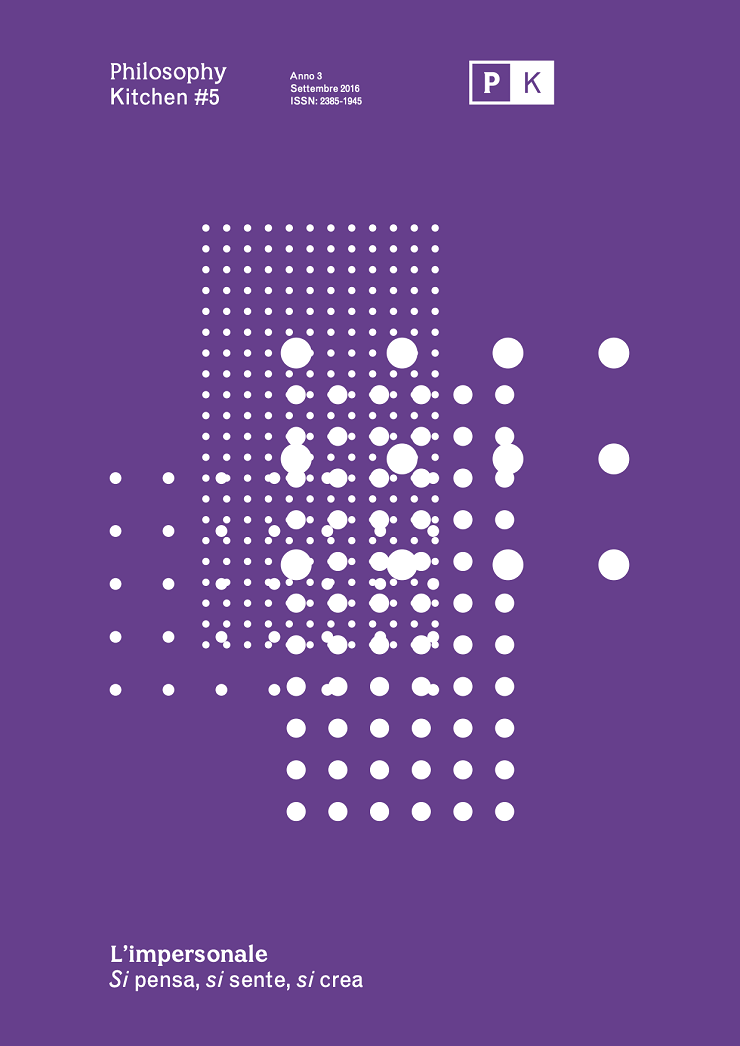
The Impersonal. It Is Thought, It Is Felt, It Is Created
No. 5 (2016)Edited by Carlo Molinar Min and Giulio Piatti
The theme of the impersonal lies at the very heart of the current debate. At times this might be less obvious but it is always present across a variety of issues and research fields often very different one from the other. Generally speaking its primary concern is to challenge the anthropologically-centered notion of subjectivity, in order to theorize a sort of “impersonal field” capable of establishing and expressing the main lines of the space of concretely experienced reality...
-
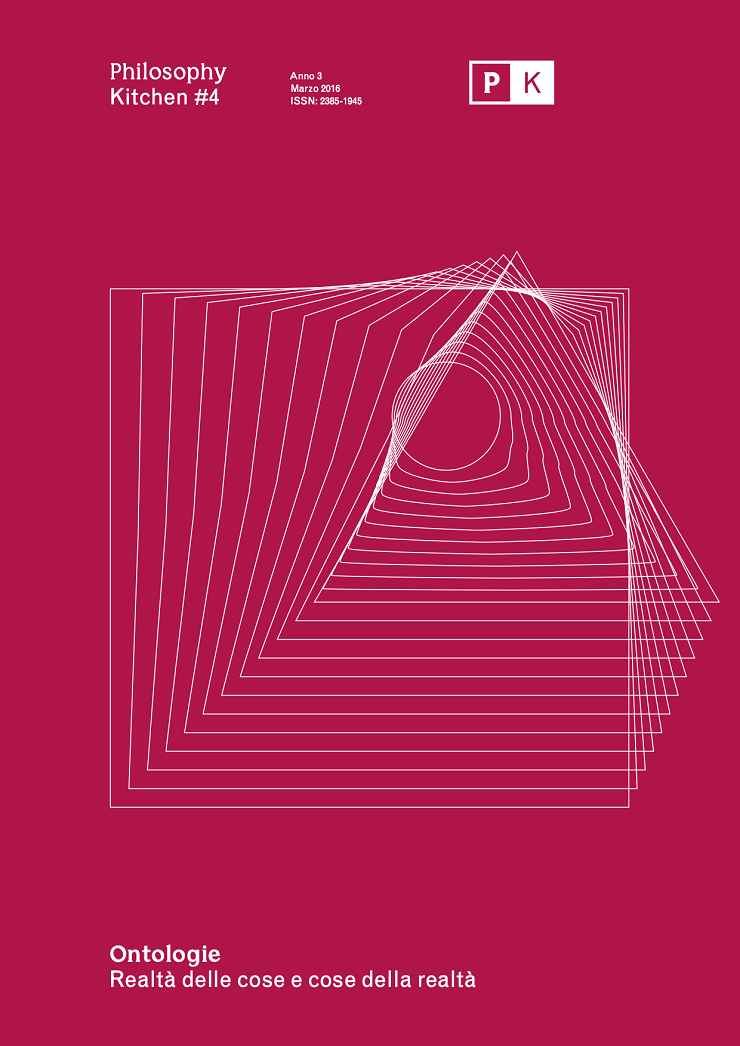
Ontologies. Reality of Things and Things of Reality
No. 4 (2016)Edited by Claudio Tarditi
Even though the XXth century is usually described as a period marked by the crisis of ontology and metaphysics, nevertheless in recent years there has been an extended and widespread reprisal of ontological themes in both continental and analytical philosophy. In other words, contemporary thought has witnessed, up to present day, the emergence of a variety of different viewpoints on ontology and its fundamental role for philosophical discourse.
-
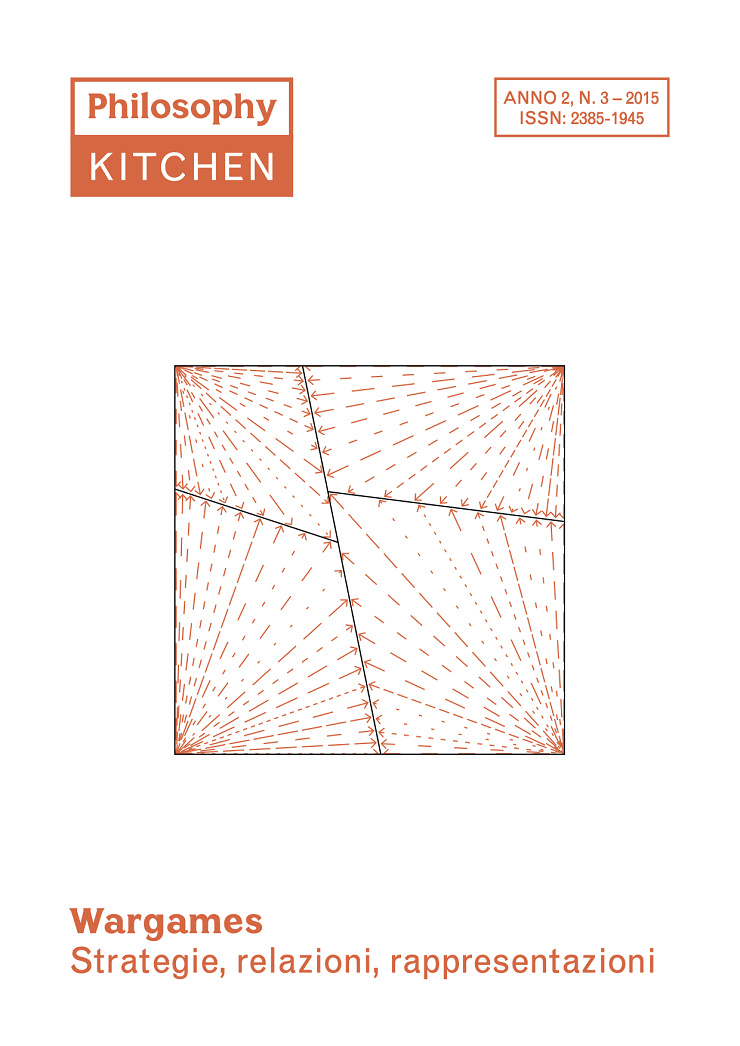
Wargames. Strategies, Relationships, Representations
No. 3 (2015)Edited by Valter Coralluzzo
“No more wars!” for many decades, the European collective consciousness after World War I and II, and the American one after the Vietnam War, has found in this motto an enduring and effective source of inspiration. Nevertheless such anti-war attitude did not arise from a rational reflection concerning the opportunity to choose different methods, apart from war, to settle conflicts...
-
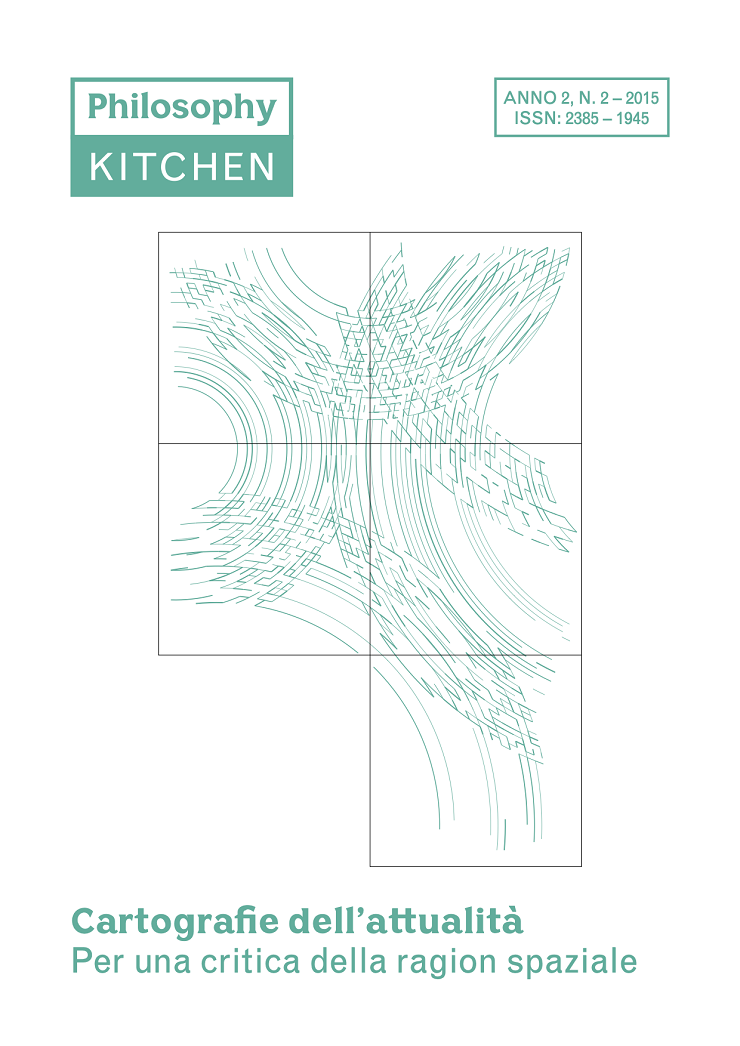
Cartographies of the Present. A Critique of Spatial Reason
No. 2 (2015)Edited by Carlo Galli
Movement involves the production of spaces. The fact that spaces are constructed does not mean that the substance of plains, seas, mountains, rivers and forests is irrelevant: rather, the process of hominization originates precisely from the very restrictions imposed by such materiality. The role of human sciences consists therefore in conceptualising the interweaving of these physical boundaries ‒ what we may call the “givenness” of the geographical element ‒ and the collective and individual practices of production of meaning, that contribute to making these spaces the material a priori of history.
-
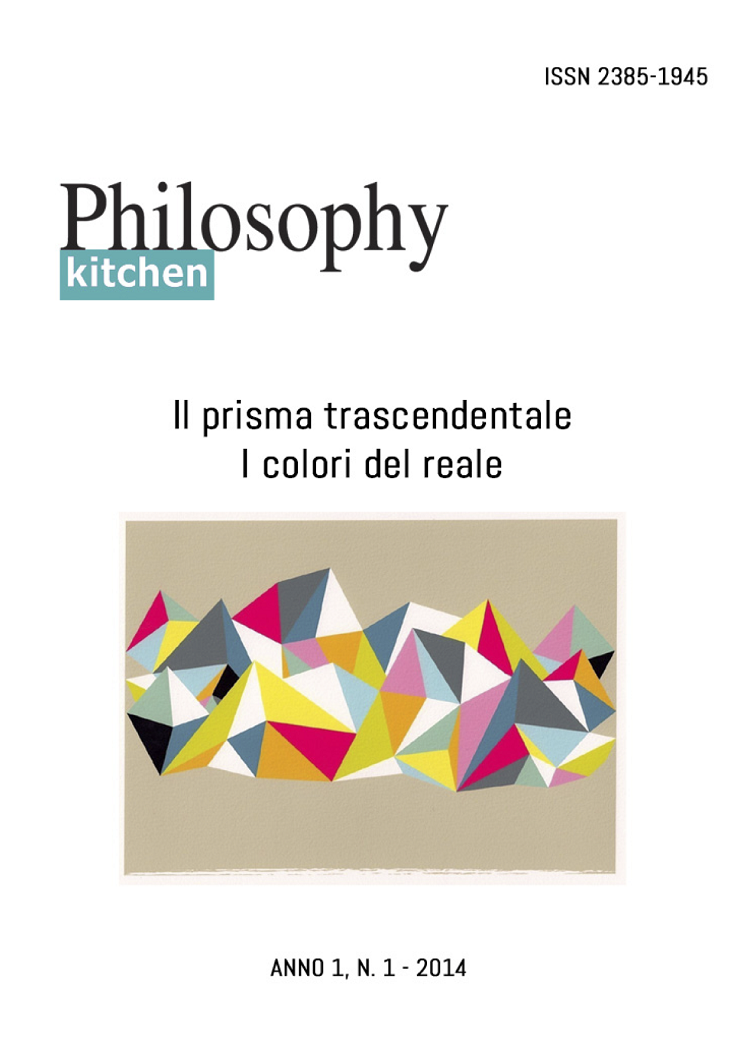
The Transcendental Prism: The Colours of the Real
No. 1 (2014)Edited by Philosophy Kitchen
It does not take much theoretical effort to show how philosophy can be done without resorting to the notion of "transcendental" – or, in a more profound way, without assuming the transcendental position. The history of twentieth-century philosophical thought shows clearly this fact. From analytical philosophy to hermeneutic philosophy approach, the philosophical traditions that made persuasive the idea according to which the philosophical question could – and, indeed, should – be articulated without repeating the founding gesture...
-
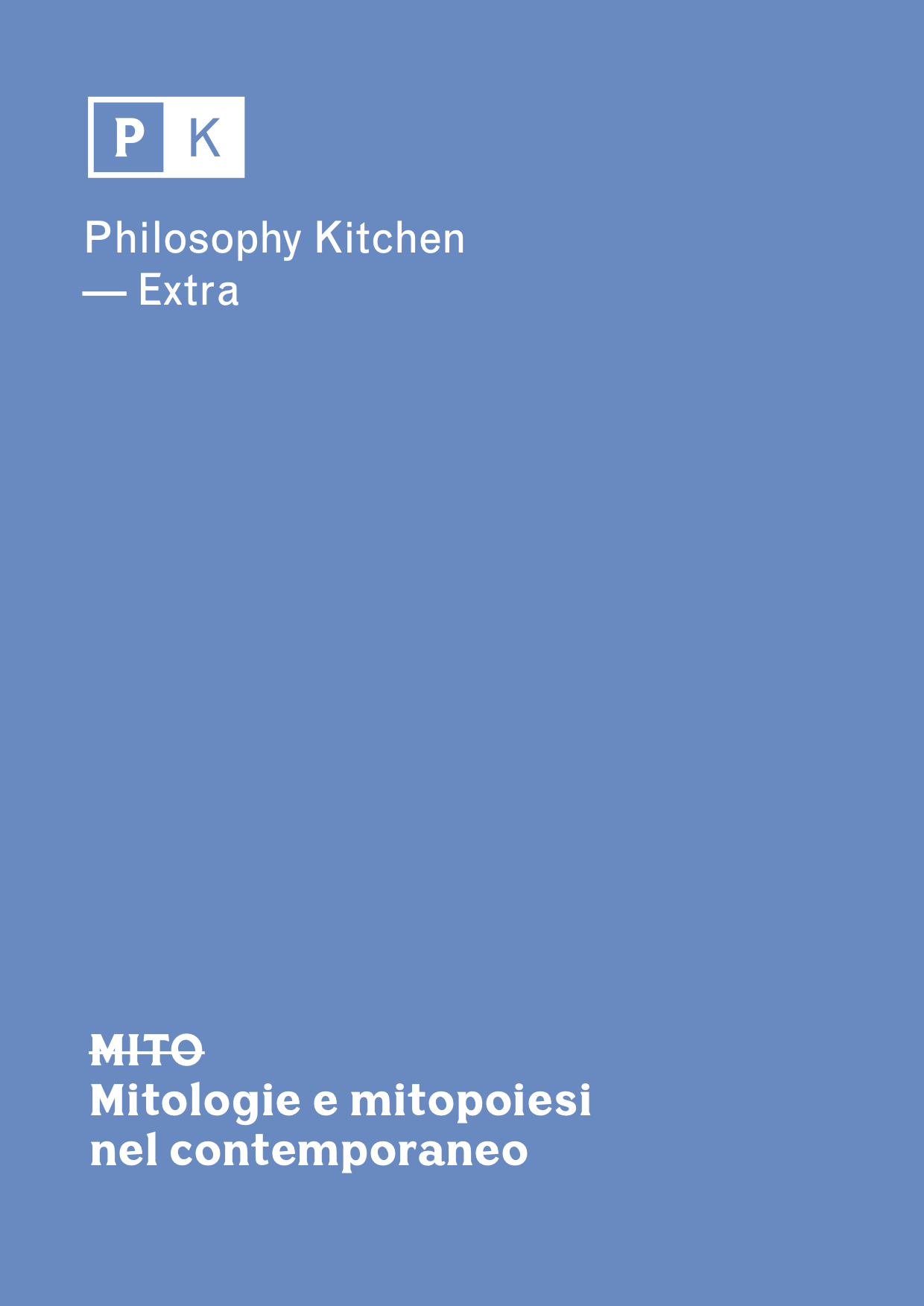
EXTRA#1 - Myth. Mythologies and Mythopoiesis in Contemporary
Vol. 1 (2016)Edited by Giovanni Leghissa and Enrico Manera
In the last fifteen years of research and teaching, the themes and subjects to which we have turned our attention, starting from positions and with independent trajectories, have shown a common denominator that can be indicated in the myth. Every time, in dealing with monographic or thematic-discursive tools and glances from time to time, disparate objects related to the dimensions of politics, of society...
-
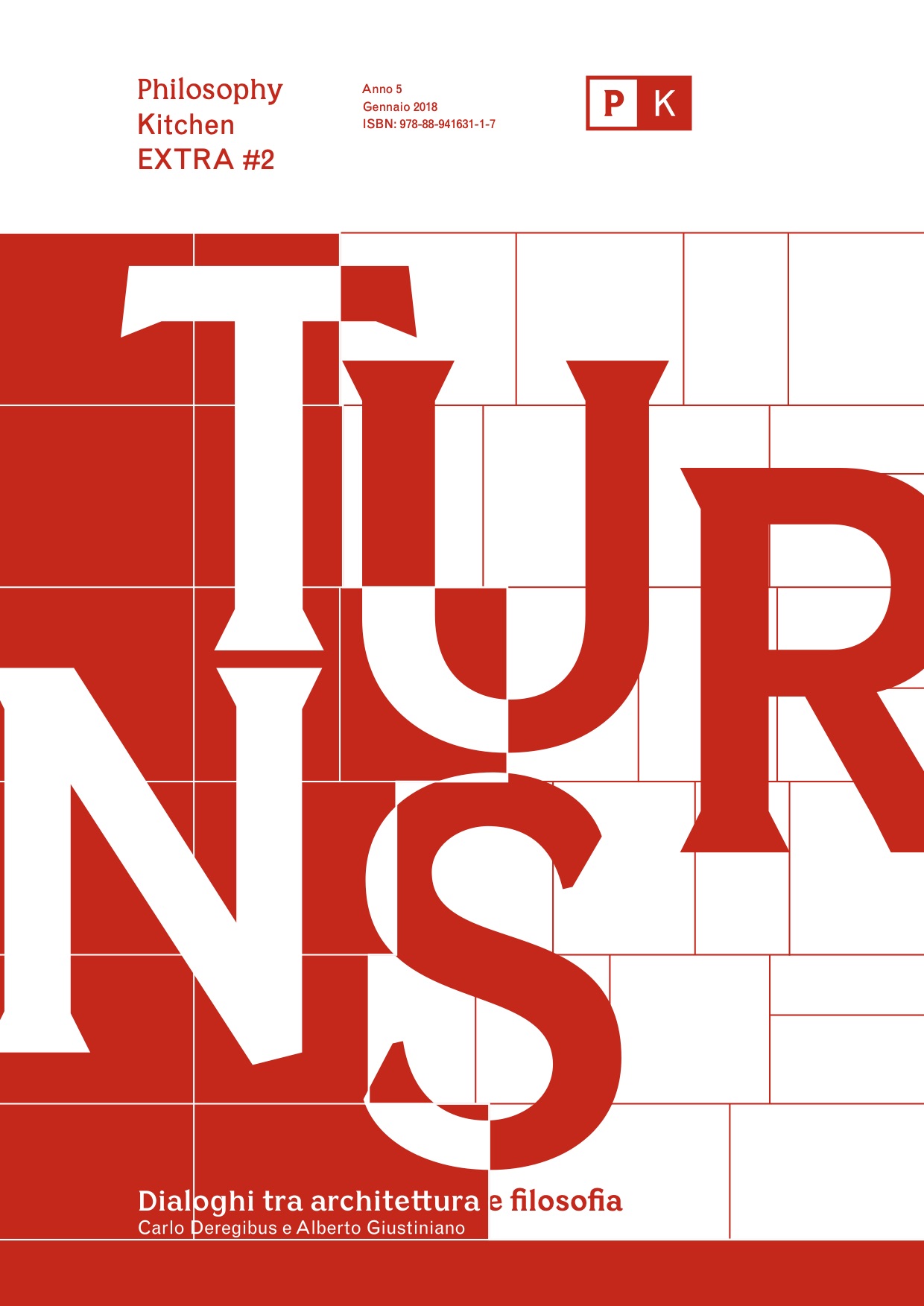
EXTRA#2 - TURNS. Dialogues Between Architecture and Philosophy
Vol. 2 (2018)Edited by Carlo Deregibus and Alberto Giustiniano
TURNS. Dialogues Between Architecture and Philosophy is the trace of an often heated dialogue, full of misunderstandings and reconciliations, which involves architects and philosophers, teachers and professionals, and still biologists, research doctors, students. It is the story of two disciplines, architecture and philosophy, that turn to look at each other, trying to trigger a conceptual turning point that must become a new starting point. Precisely this is the double meaning of the term "Turns" ...
-
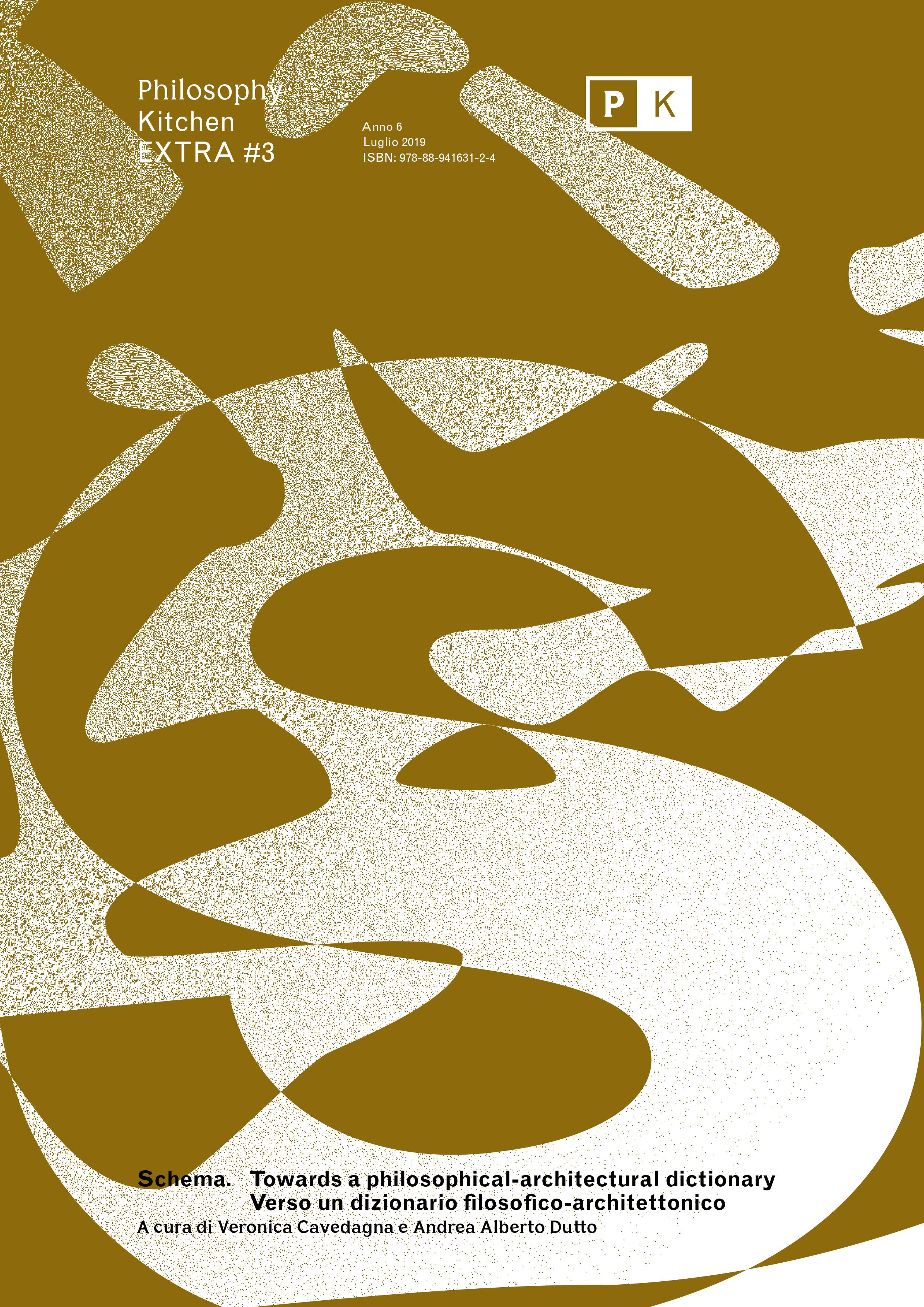
EXTRA#3 - Scheme. Towards a Philosophical-Architectural Dictionary
Vol. 3 (2019)Edited by Veronica Cavedagna and Andrea Alberto Dutto
The volume is the result of the work shared between exponents of two disciplines: philosophy and architecture. During such a work, we tried, on the one hand, to clarify the assumptions underlying the discourses and practices of the two disciplines, therefore peculiar to each; on the other hand, to identify the areas of indecision or indeterminacy at the edges of the disciplines themselves, areas in which their respective identities tend to blur each other.





